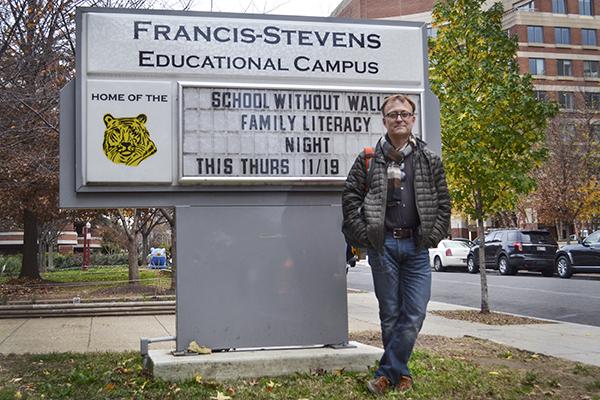A local school hasn’t had a kitchen since the beginning of the school year.
The School Without Walls at Francis Stevens, located on N Street, has not had a functioning kitchen this school year. Without the funding to complete them, renovations to the aging school were halted over the summer, a member of the school improvement team said.
The students get their lunches delivered daily from Hardy Middle School, located about 15 minutes away, putting a burden on staff at both schools. And a nutrition program planned for the school hasn’t been able to be fully introduced because of the lack of resources, said Chris Sondreal, a Francis Stevens parent and a member of the school’s improvement team.
“The regular meals are not that exciting and are lukewarm and prepared off site,” Sondreal said. “It leaves kids with a limited menu and not the sorts of things they should be getting.”
City officials already awarded the school $2.5 million in renovations to pay for upgrades to the cafeteria, auditorium and gymnasium. The renovations stopped this summer when the funding ran out, prompting neighborhood groups to ask the city for more.
The school serves students from preschool through eighth grade, and became a satellite campus for School Without Walls on G Street in 2013. Since then, students have used Francis Stevens’ auditorium, gymnasium and athletic fields.
Richard Trogisch, the school’s principal, was not able to be reached for comment.
Sondreal said the base of the kitchen is already finished and that only the equipment that needs to be installed after the Department of General Services signs off for the kitchen’s funds to be released. He said the kitchen could be completed by January.
Once finished, the kitchen will prepare food for the school and act as a classroom for a program that teaches students how to prepare healthy food, which the school has already implemented with a $45,000 budget, said Lee Granados, the president of the school’s parent association. The program, Foodprints, is currently in place at six schools across D.C.
Sondreal said this project has only achieved half of its goal, as students have been harvesting food all semester but have not yet been able to work in an actual kitchen. The instructional kitchen would also be accessible to the general public, he said.
“One of the things the campus aspires to do is include more of the neighborhood in our activities and accommodate them at our facilities,” Sondreal said.







